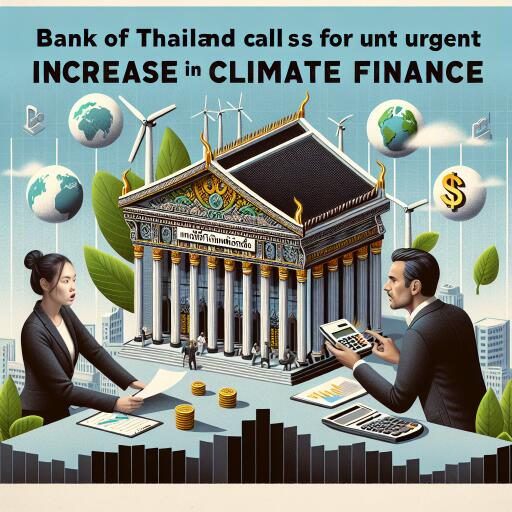
Bank of Thailand Calls for Urgent Increase in Climate Finance
The Bank of Thailand is sounding the alarm on the pressing need to expand climate finance to bolster Thailand’s pursuit of its sustainable development goals. This call to action comes in the wake of a glaring discrepancy between current funding levels and the anticipated global requirements for a successful transition to sustainable practices.
During the Sustainability Forum 2025, BoT Deputy Governor Roong Mallikamas underscored the urgency of the situation, noting that climate finance raised in 2022 amounted to only $1.5 trillion. This figure pales in comparison to the $7.4 trillion estimated to be needed annually. This shortfall represents a significant hurdle, particularly for developing countries like Thailand, which are uniquely vulnerable to climate change impacts.
In her detailed address, “Climate Finance toward SDGs,” Roong highlighted the glaring inadequacy of current efforts to combat the rapidly evolving threats posed by climate change. Despite ongoing pledges from developed countries to boost climate funding, as discussed at COP29 in Baku, Azerbaijan, earlier this month, the goal of securing $300 billion annually by 2035 is starkly insufficient. This shortfall presents acute challenges for nations like Thailand, which face specific vulnerabilities due to their development status.
Roong’s call extends beyond mere acknowledgment of the funding discrepancy. She emphasizes the necessity for a collaborative global effort to address these financial gaps. The gap not only affects large-scale climate initiatives but also stifles newer, innovative projects that could bring about significant environmental benefits.
Financial constraints are particularly daunting for developing economies. These nations often lack both the fiscal means and the technological infrastructure needed to mitigate and adapt to climate impacts effectively. As a result, they are disproportionately affected by climate-induced disruptions, from extreme weather events to shifts in agricultural productivity.
The need for increased climate finance is imperative not just for meeting development goals but for ensuring a just transition. Developed countries have a crucial role to play in facilitating this transition by leveraging both public and private sectors to drive innovative financing solutions. The disparity in current climate funding levels versus the required amounts underscores the need for a new, robust financial framework that can support sustainable development across the globe.
Roong Mallikamas’s address serves as a clarion call to all stakeholders involved, urging them to move swiftly and decisively to bridge this financial gap. A global cooperative approach will be imperative to mobilize the necessary resources that can foster sustainable advancements, particularly in developing regions that are at the forefront of climate vulnerability.
This pressing issue is not confined to the borders of any one nation, but rather requires a shared global commitment to create a resilient, sustainable future. The time to act is now, and expanding climate finance is essential to turning the tide in the fight against climate change.





Leave a Reply